Editor’s Note: Spoilers ahead.
***
Ecstatic people in pink are still flooding into theaters, but by now you’ve probably also seen some blowback to the Barbie movie. Who knew it could be such a cultural flashpoint?
Granted, just like the doll herself, Barbie, the movie is odd at times, with contradictory impulses.
It plays on at least three levels. A cartoon with a brainy script packed with contemporary gender polemics, it also features a glorious “dream ballet” with the Kens and swoon-worthy sets. It’s both warm/old-fashioned about emotional intelligence and the human condition, and cold/subversive about Mattel, the war of the sexes, pop culture, and movie-making.
For instance, there are so many jokes about “the patriarchy” in it that the anti-woke newscasters on Fox (many of whom look just like Anchor Barbies) went bonkers. (The dolls themselves were never known to be able to take a joke, either.)
They said it was a movie for “joyless feminists.”
Meanwhile, some lefties are avoiding it altogether, due to issues with pink, plastic, dumb, fake female playthings, the cinematic trend of franchise-ization, IPs, and Mattel’s over-the-top marketing for world dominance. Some critics hated it, too.
But forget the pink. As a “joyless” feminist, I felt seen.
Read More: The Real Barbie and Me: A Personal History
Feeling Seen, Counterintuitively
Director Greta Gerwig, (Lady Bird, Little Women) who co-wrote the film with her partner, Noah Baumbach, is incapable of doing anything dumb. She somehow made a clever, cerebral, almost underground film that simultaneously brings big, broad, palpable joy to the surface.
And it works. At the two showings I’ve attended, the audience—all ages, generations, identities, colors—was one, laughing, nodding, and soaking it in.
I don’t think there was ever a Sassy Immanuel Kant Barbie, but the film is full-on philosophical.
Let’s get back to how wise the movie is. I don’t think there was ever a Sassy Immanuel Kant Barbie, but the film is full-on philosophical, starting with a shocking existential crisis. As played to perfection by Margot Robbie (who owned the Mattel property and hired Gerwig to develop the film) Stereotypical Barbie starts malfunctioning. Thoughts of death enter her perfect dollhead. She also develops bad breath while her tiny little pronged feet go flat. Thus shamed, she’s sent off to see “Weird Barbie,” brilliantly embodied by Kate McKinnon, a Wizard of Oz of sorts, who has hacked-off punk hair, a Magic-Markered-face, and legs in the permanent “splits.” Her back story is that she was played “too hard” in the real world as a doll. Now she helps other Barbies avoid her fate, and as she shows Barbie, her cellulite.
As such, the filmmakers acknowledge the reality of what little girls (and boys) sometimes did with the actual dolls, when not cross-dressing Ken. We get more clever subversion in the form of a self-aware, self-correcting announcer/Voice of God, the deliciously plummy-voiced Helen Mirren, who breaks the fourth wall. At one point in the real world when Barbie cries that she’s “ugly,” Mirren interrupts to say that the filmmakers probably made a mistake in casting Margot Robbie to deliver that line.
And yes, as with heroes from the Odyssey on up, Margot Barbie is sent on a “journey” to find the Barbie user in the real world who played her too hard.
The Intersection of COVID and Barbie?
Time is amusingly slowed down as she busts out of heart-shaped Barbie Land, a clever pink heaven filled with classic dream houses (which were inspired by life in Palm Springs) with 2-D and 3-D elements. She motors along on a pink brick road in her pink convertible, rocking out to “Closer to Fine” by the Indigo Girls on the radio. Ken, always the cipher and the butt of serious jokes in the movie (he deserves his own article), invades her escape and somehow settles in the back seat of her car.
Like Barbie, we were dying to break out of this bubble of doom, and return to our “real” lives.
While there’s a classic arc to the film, here’s the real-world rub: Gerwig and Baumbach wrote the script during the depths of COVID.
We all buried profound feelings (including fear of death) during that time to get by.
In our lifetimes, we’d never experienced quarantine before, stuck inside, hearing about overburdened hospitals and climbing death tolls; sadly, some of it hitting home.
Families were squished together 24/7 and had to reconfigure. People who lived alone got more isolated. No one got away free and clear. In the not knowing, we all had to have some sort of reckoning about what was important in life, even if the thoughts were fleeting.
Like Barbie, we were dying to break out of this doom bubble, and return to our “real” lives.
The Intersection of Plastic and Humanity?
So there’s kindness and humanity about our group struggle at the bottom of this film, which is pretty funny, considering that it’s about a 63-year-old perfect hunk of plastic. That’s why it inspires communal feelings, with people going out to movie theaters in record numbers to experience it together. Its monumental success also speaks to taking the feelings and history of girls and women seriously. Because although there’s certainly a teenaged contingent who’ll enjoy it, the other shock of the movie is that it really hits squarely at Moms and Grandmas. It’s quite tearful, actually, to come to terms with your own history as a female. The past resonates, even if you never played with Barbie.
One of the shocks of the movie is that it really hits squarely at Moms and Grandmas.
But back to the journey. After using every cool Barbie conveyance in history that your parents refused to buy you (maybe that was just me), they arrive in L.A. And the sophisticated jokes about this new—even more plastic?—world start flowing, beginning with their new Century City base (home to CAA.)
Barbie starts getting wolf whistles and hates it. But Ken (Ryan Gosling, who couldn’t be more perfect for the role) loves this world. Unlike Barbie World, women give him the time of day, and even ask him for the time. He learns, and really warms up to the word “Patriarchy” and also learns a love of horses (man-extenders, he call them). He decides to leave, and imports his new ideas to Barbie Land, taking over Barbie’s house and renaming it “Ken’s Mojo-Dojo Casa House.” He now dresses in fur coats over a bare chest and headbands—a slyly striking Sly Stallone image. There’s something about the death of pink and the new deep black vistas of bro-ness in this boy world that reminded me of what Elon Musk has done to Twitter—changing the bluebird into a hollow X, within a burned-out visual landscape.
There is a pretty hilarious aspect to Ken’s Mojo-Dojo—world. The Kens of many races all become ardent, bare-chested guitar players, directing the Matchbox-Twenty song “Push” at the Barbies. (“I wanna push you around/I wanna take you for granted…”)
Finding Her Girl
Meanwhile, Barbie tries to “find her girl!”—the depressed user who got her into this mess. This really gets to the heart of the film. Surprise: In the end, it’s not the girl, it’s the girl’s mother (Gloria) who was having thoughts of death. Sasha, the human teenager played by Ariana Greenblatt, couldn’t be smarter or sassier.
She tells Barbie she’s set the women’s movement back 50 years and is a “bimbo” and a “fascist.”
When Barbie finds her at a lunch table with her middle school friends, she approaches wearing her pink cowboy outfit with fringe, thinking that the girls will love her. Instead, Sasha is horrified, and tells her among other things that she’s set the women’s movement back 50 years and is a “bimbo” and a “fascist.”
Shocked, Barbie runs away and cries, telling herself in one of many genius comic asides that she couldn’t possibly be a fascist because she doesn’t “control the railways or the flow of commerce.”
Another inside joke: Sasha and her friends are like less problematic, enlightened Bratz dolls, even bearing the same names. Bratz was the first significant competitor to Barbie, helping to knock out Mattel sales in the early 2000s.
What’s Wrong with Sasha’s Mom?
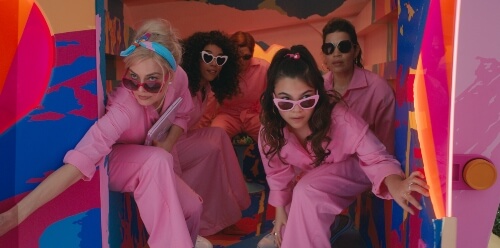
But it’s Sasha’s mom, Gloria (named for Steinem?), played by America Ferrara, who is tearing up over not being able to play Barbies with her daughter, and losing her self-esteem. I’m glad Ferrara got this role because I always felt bad about “Ugly Betty.” She’s gorgeous here. And she offers some heart-rending reflections on the mother/daughter experience, which is really the heart of the movie, a paean to mamas and grandmas.
Ferrara’s the perfect actress to deliver Gerwig’s big, knock-out third act speech about women being “never enough,’ which has gone viral.
The film is cause to re-contextualize our histories, and sit with the fact that not enough has changed.
A bit of it goes: “You have to never get old, never be rude, never show off, never be selfish, never fall down, never fail, never show fear…It’s too hard! It’s too contradictory… And it turns out in fact that not only are you doing everything wrong, but also everything is your fault…”
It was called “baby-food feminism” by one critic, and though I loved the speech, it really did remind me of being a woman in the 1980s. Still, it was cause to re-contextualize our histories, and sit with the fact that not enough has changed.
Through lots of plot, Gloria and Sasha manage to talk some sense into Barbie, and get her back to Barbie Land. Except now it’s taken over by the Kens, who have overthrown the all-female Supreme Court and plan to change the Constitution so that men have all the power. (I got Trump vibes here.) It’s also a nod to the fact that young women now, unlike their mothers and grandmothers, are not free to make their own health decisions about abortions.
The Barbies figure out a way to stop the vote, and take over the takeover, so that they go back to being doctors, athletes, the President (Issa Rae is excellent) and their fully equal way of life.
Patriarchy, it turns out, hurts men as much as women. The film speaks to our collective trauma.
In the end, Barbie decides to go back to being a human. I won’t give away the final lines, but Margot Robbie really transforms herself as an actress and is pitch perfect.
A Will Ferrell Raspberry and a Big Brava
The only wrong note in the film comes with Will Ferrell, as the Mattel CEO. (The real CEO is named Richard Dickson, and I’m not making that up.) Ferrell’s character, part clown, part Willy Wonka, is just too dumb for the movie, and his time on screen is off-putting.
I’ve seen the movie twice and still feel like I missed a lot.
In the end, I’ve seen the movie twice and still feel like I missed a lot.
Congrats to Greta: Barbie’s opening weekend shattered the record for films directed by a woman. Now, after its second weekend, the box office is still making history, and the film is now showing around the world. It’s reason to celebrate.
Except: Lena Dunham has been hired to do the same for Polly Pocket.
I don’t know if I can go there.
Read More: Should She Give Barbie as a Gift? A Feminist Grandmother’s Dilemma

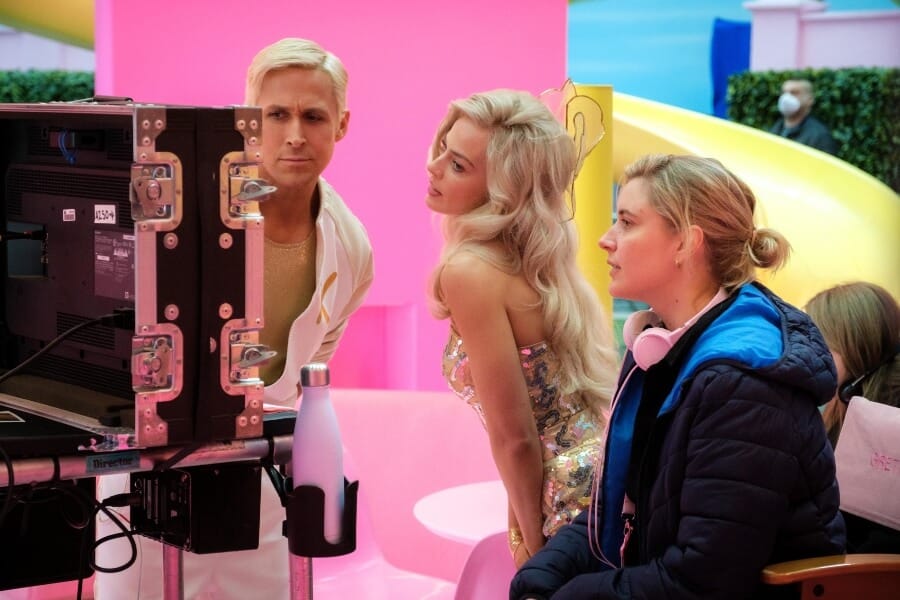


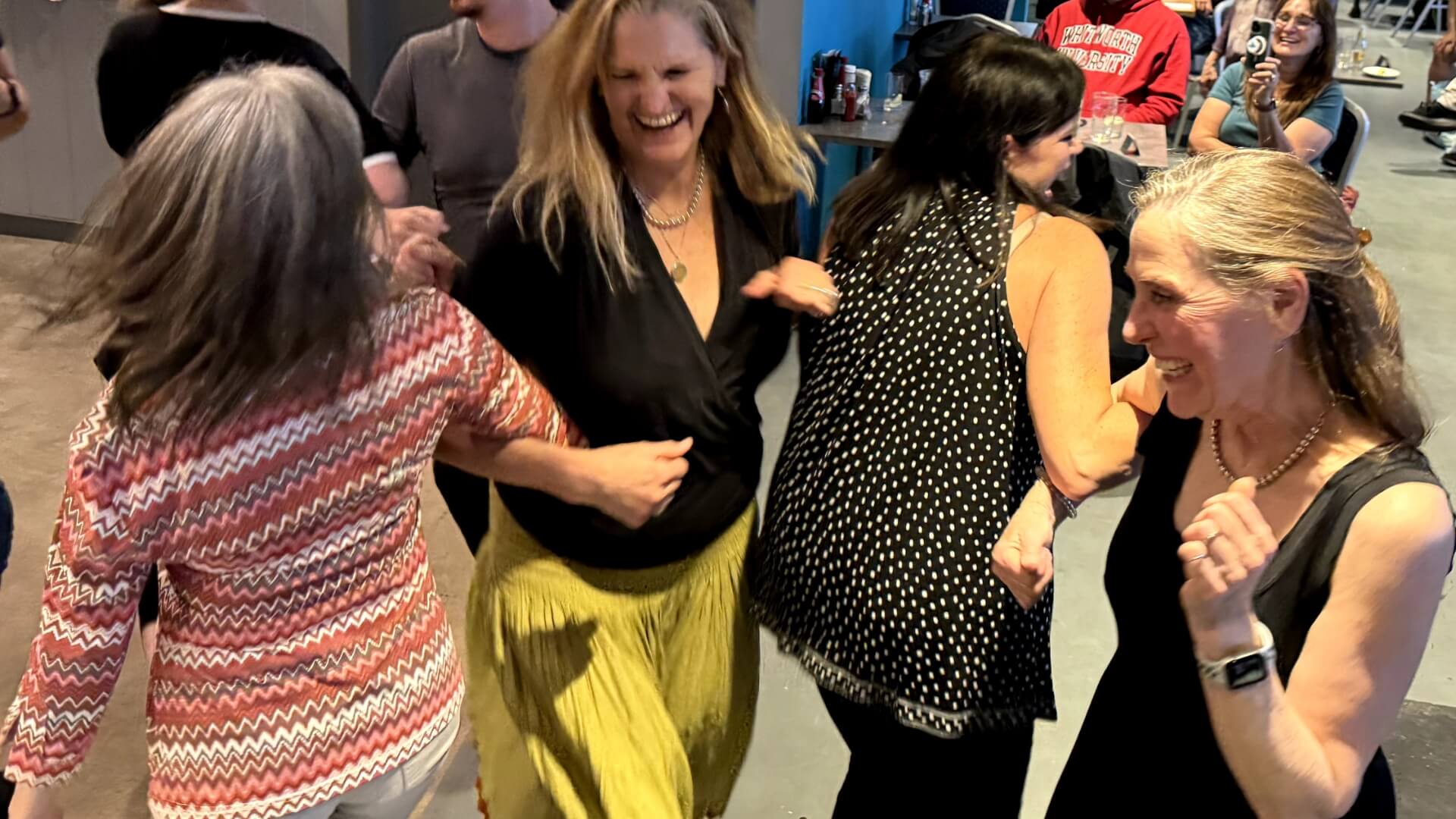







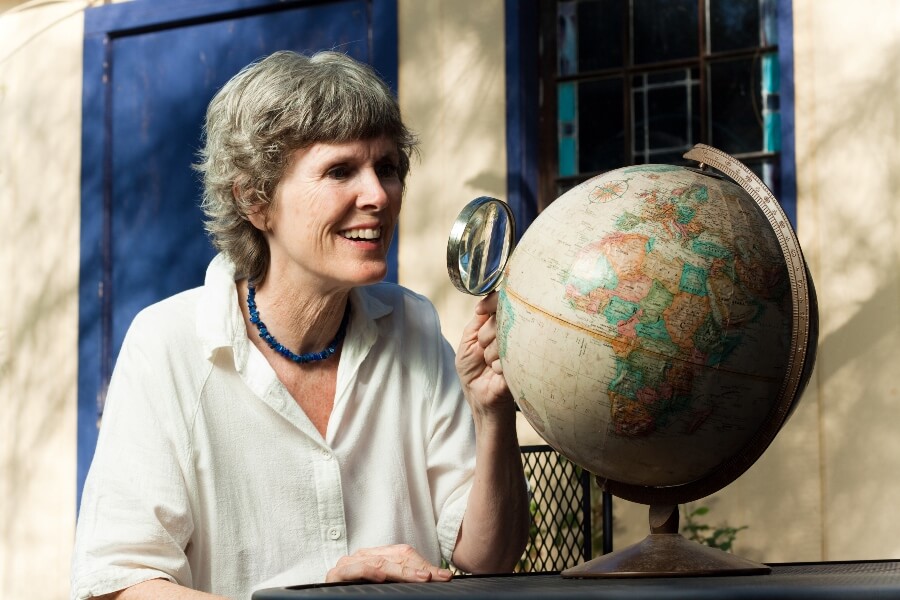
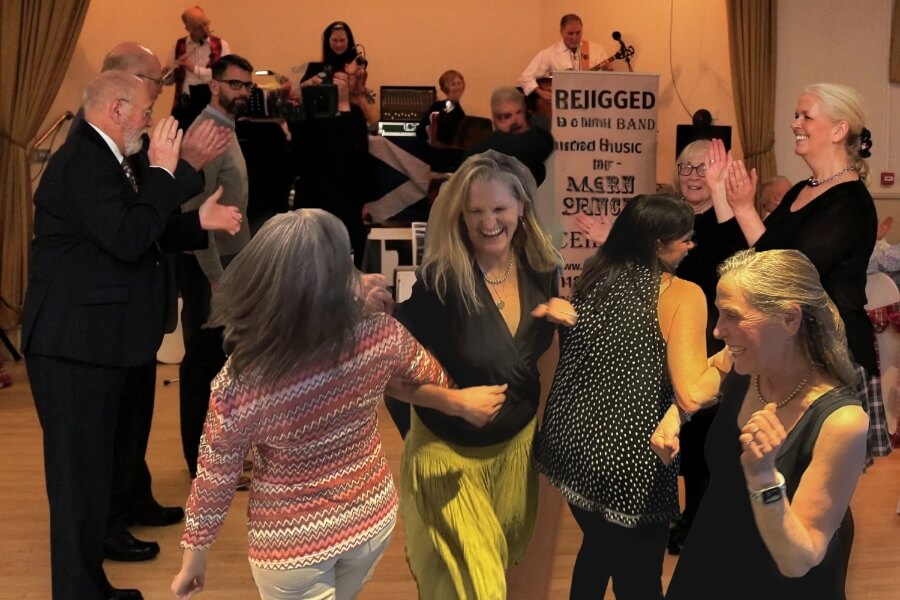

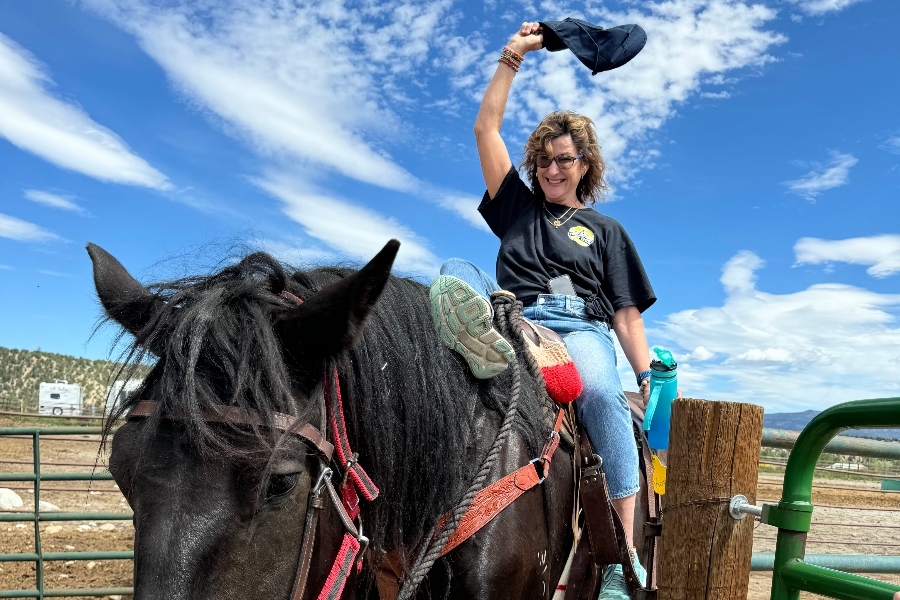






0 Comments